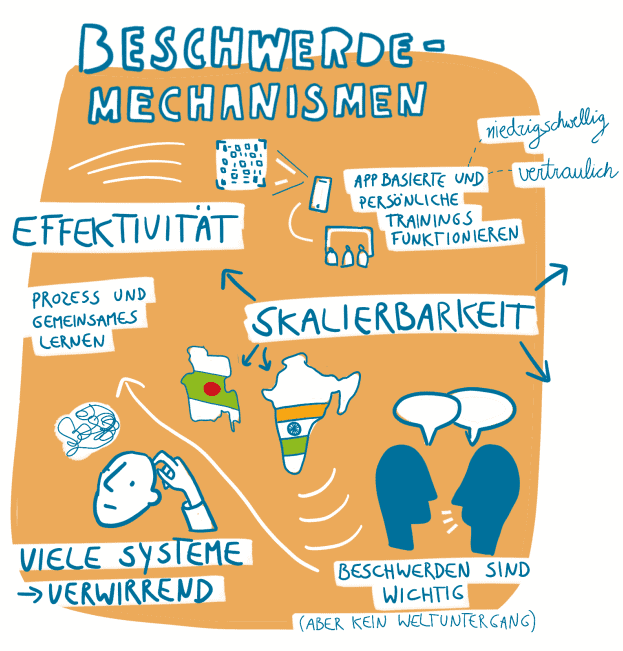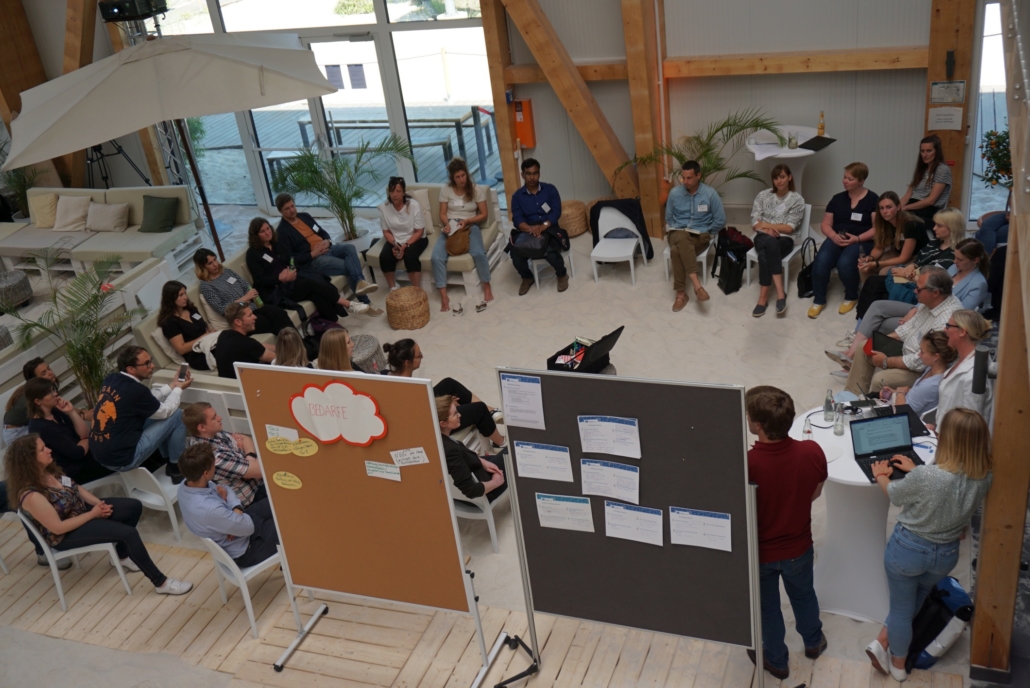"Complaints are not the end of the world, but important"
"Complaints are not the end of the world, but important"
Access to complaints mechanisms, redress and legal support are important components of corporate due diligence. Workers in the textile industry need channels or points of contact to raise awareness of workplace grievances and receive support and redress.

Arbeiter*innen müssen ihre Rechte kennen und wissen, wie und wo sie Missstände melden können. Dafür haben sich unter anderem niedrigschwellige Apps bewährt. Auch Trainings helfen, Beschäftigten in Produktionsstätten für ihre Rechte zu sensibilisieren und ihnen die Thematik näher zu bringen.
Complaint structures exist both within factories and across factories or even countries. If they function well, i.e. are accessible to those potentially affected, this leads to more complaints. The Partnership members at the workshop see this as a positive sign: "Complaints are not the end of the world, they are important."
All actors in the textile supply chain, such as suppliers and business partners, should therefore see reporting of workplace grievances as a productive and necessary element for transparent dialogue and a more sustainable textile industry. It is crucial that those potentially affected have confidence in the mechanisms and do not have to fear negative consequences.
Partnership members also discussed challenges: Complaints mechanisms often cover social issues, but environmental issues too little or not at all. Furthermore, complaints mechanisms are not available in all countries from which alliance companies buy. Furthermore, there is a lack of approaches for the deeper supply chain.
Participants also noted that if there are too many different mechanisms, approaches and requirements, it quickly becomes confusing for all involved. Partnership members therefore advocated harmonising complementary or fragmented complaints systems where possible and appropriate. Tried and tested mechanisms should be promoted and access should be made available to even more workers.
The Textile Partnership has a strategy circle consisting of representatives of all stakeholder groups. On the one hand, the strategy group aims to pursue cooperation with other sector initiatives that have complaints mechanisms or are also working on this issue. On the other hand, the strategy group wants to strengthen local contact points for workers.
In addition, several members have joined the Partnership Initiative "Complaints Mechanisms" and launched cooperation projects, such as the module to open up the Fair Wear grievance mechanism to Partnership members or the strengthening internal complaints mechanisms in Pakistan. In addition, the three Partnership members Primark, C&A and Orsay support the local NGO MUDEM, which offers a contact point for Syrian refugees in the Turkish textile industry through the Worker Support Centre (Details of the MUDEM-Project).
The workshop was part of this year's Textiles Partnership Working Meeting on 17 and 18 May in Berlin. The unconference format offered Partnership members the opportunity to propose their own topics and questions that they would like to work on together.



